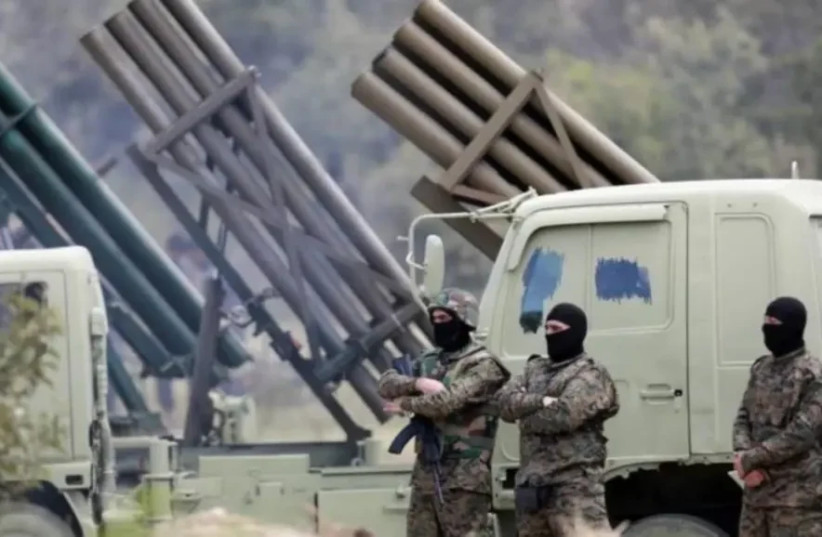Hezbollah stands at a crossroads after Iran’s attack against Israel.
Tehran launched drones and missiles from multiple directions; Hezbollah is a key Iranian-backed terrorist group. Its role in the attack, however, illustrates how it is trying to balance its standing in Lebanon with its alliance with Iran.
Hamas launched its attack on Israel on October 7. One day later, Hezbollah joined in from the North. Over the past six months, it has posed as a support beam for Gaza and the Palestinians.
On Saturday, that talking point shifted because Hezbollah clearly supported Iran’s attack on Israel, which signals to Lebanon that Hezbollah is increasingly dragging Beirut into a potential escalation it might not want to be a part of.
On Friday, Hezbollah escalated its attacks on the North. Iran attacked using drones and missiles and mobilized the Houthis in Yemen to join in. Hezbollah’s attack on Friday included dozens of launches. It culminated over the next two days with attacks against the Golan, and more than 150 rockets targeted military bases.
This is a serious escalation of the kind that Hezbollah, in the past, only did when it claimed to respond to Israeli airstrikes deep inside Lebanon. That means the Hezbollah threat to Israel coincided with the Iranian attack and was part of showing support to its patron, extending far beyond Hezbollah’s claims to be backing Palestinians or “defending Lebanon.” What it did was to more openly join Iran as an acting proxy.
That night, Hezbollah no longer used force to support the Palestinians, but rather, it was part of the Iranian response to Israel. It now becomes increasingly apparent that Hezbollah is acting on Iranian guidance.

"Hezbollah was part of the Iranian response to Israel"
Iran has backed Hezbollah for years, dating back to the 1980s; key Islamic Revolutionary Guard Corps members supported it. Things have now changed because Hezbollah is being used as an Iranian tool, meaning that it will have a harder time pretending that it is merely “resisting” in Lebanon.
Hezbollah has carried out more than 3,100 attacks against Israel since October 7. It is now expanding its usefulness to Iran as a proxy, but this very act could potentially harm its image in Lebanon, which can put pressure on the group to change course.
As Hezbollah’s true colors as a proxy are revealed, it is worth highlighting how it has been holding Lebanon hostage to the Iranian escalation in the region. Israel’s goal in the North is to establish enough of a secure border to allow the return of some 50,000 displaced citizens; this cannot be done if Hezbollah is on the border and its threats are so clear.
For that to happen, Hezbollah would have to be pushed back to a depth of more than 16 kilometers into Lebanon, or as far back as the Litani River. This would put Israel out of range of Hezbollah’s anti-tank missiles and its large short-range Burkan missiles, making it harder for Hezbollah to conduct an October 7-type of attack.
As some in Lebanon become frustrated with Hezbollah’s actions, there may be an opportunity to achieve this goal. Hezbollah is facing pressures that it hadn’t before, and it has now revealed its hand as working for Iran, which makes it harder for it to spread its propaganda about backing Gaza.
Many questions remain about what comes next in Lebanon. Israel and Lebanon signed a maritime deal in 2022 that was supposed to benefit both countries and ostensibly reduce tensions. Before the deal, Hezbollah threatened Israel and then escalated tensions in early 2023. This shows that it cannot be trusted.
It is unclear how Hezbollah will be deterred from its attacks on Israel. Time will tell if the Iranian-backed group will change course.
